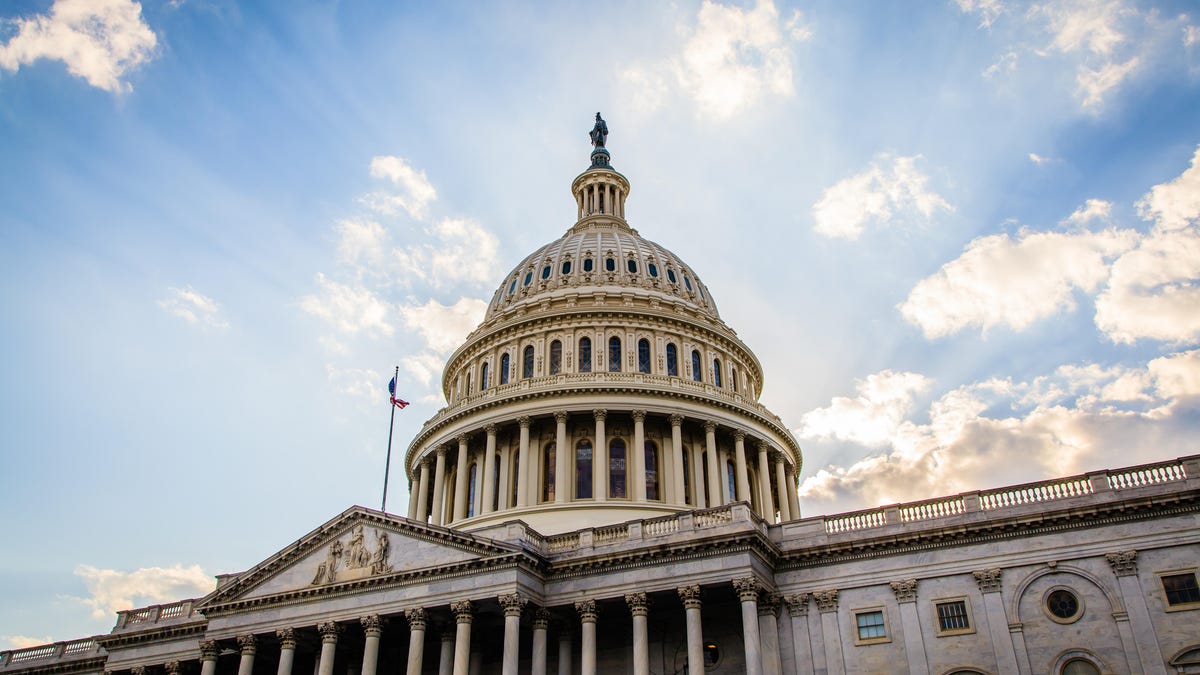What Zuckerberg, Dorsey, Pichai plan to tell Congress on Thursday
The CEOs of Facebook, Twitter and Google will testify during a House hearing on misinformation.

The US Capitol building is the seat of Congress.
Facebook CEO Mark Zuckerberg plans to propose changes to Section 230, a decades-old law that gives protections to social media companies, during a congressional hearing Thursday on the spread of online misinformation. Zuckerberg will testify remotely at the hearing, along with Google CEO Sundar Pichai and Twitter CEO Jack Dorsey .
"Instead of being granted immunity, platforms should be required to demonstrate that they have systems in place for identifying unlawful content and removing it," Zuckerberg plans to say in his opening remarks, according to written testimony posted by the House Committee on Energy and Commerce on Wednesday.
However, Zuckerberg's proposal would keep some protections in place. "Platforms should not be held liable if a particular piece of content evades its detection -- that would be impractical for platforms with billions of posts per day -- but they should be required to have adequate systems in place to address unlawful content," the Facebook CEO will say.
Section 230, a provision in the Communications Decency Act, shields social media companies such as Facebook and Twitter from lawsuits over content their users post on their platforms. It's faced criticism from both Democrats and Republicans, and former President Donald Trump called for the elimination of Section 230.
Tech companies say Section 230 protections allowed online platforms to flourish in the early days of the internet. They argue the protections are necessary for innovation, especially among new startups.
But as the influence and size of companies like Google, Twitter and Facebook have grown, lawmakers are questioning whether more regulation is needed to rein in their power. Democrats are troubled by the rampant flow of hate speech and disinformation, including interference by foreign countries in the 2020 US presidential election. Republicans, led by former President Trump allege their speech is being censored by social media sites. There's no evidence the allegation is true, and the companies strongly deny the claim.
As the rhetoric around Section 230 has heated up, lawmakers on both sides of the political aisle have introduced a flurry of legislation over the past year. Seven bills have already been introduced in the first three months of this year, according to Future Tense, a partnership of Slate, New America, and Arizona State University that has been tracking legislation on this issue.
After years of resisting any changes to Section 230, some companies, like Facebook and Twitter, have already said they're open to tweaks to the law. During a congressional hearing in October, Zuckerberg acknowledged that social media platforms "have responsibilities, and it may make sense for there to be liability for some of the content that is on the platform."
At the same hearing, Dorsey suggested regulations that would require companies to make their moderation processes more transparent. He also said companies could develop clear ways for users to appeal their decisions on content moderation and give users more choices in how algorithms sort their content.
Still, he cautioned lawmakers not to go too far in their reforms. And he warned that a heavy-handed approach could especially stifle smaller startups.
"What we're most concerned with is making sure that we continue to enable new companies to contribute to the internet and to contribute to conversation," Dorsey said.
In his prepared testimony for Thursday's hearing, Dorsey doesn't specifically mention Section 230 reform. But he does talk about the "trust deficit" that exists on platforms such as Twitter and what the company is doing to earn trust. He plans to tell lawmakers that Twitter will promote more transparency in how it operates and makes content moderation decisions. He will also talk about Twitter's plans to give users more control over their privacy settings and the algorithms that influence what they see on the social media platform.
By contrast, Google's Pichai is leery of any changes to Section 230. He will not lay out a specific proposal for reforming Section 230, according to his written testimony. Instead, he will talk up Google's efforts to combat misinformation. Pichai will also tell lawmakers he is "concerned" that recent proposals calling for changes or a full repeal of the law would have unintended consequences that could hurt free speech and the platforms' ability to take down harmful content.
He suggested that the platforms themselves improve their own policies to improve transparency and fairness. He said Google is "committed not only to doing our part on our services, but also to improving transparency across our industry."



